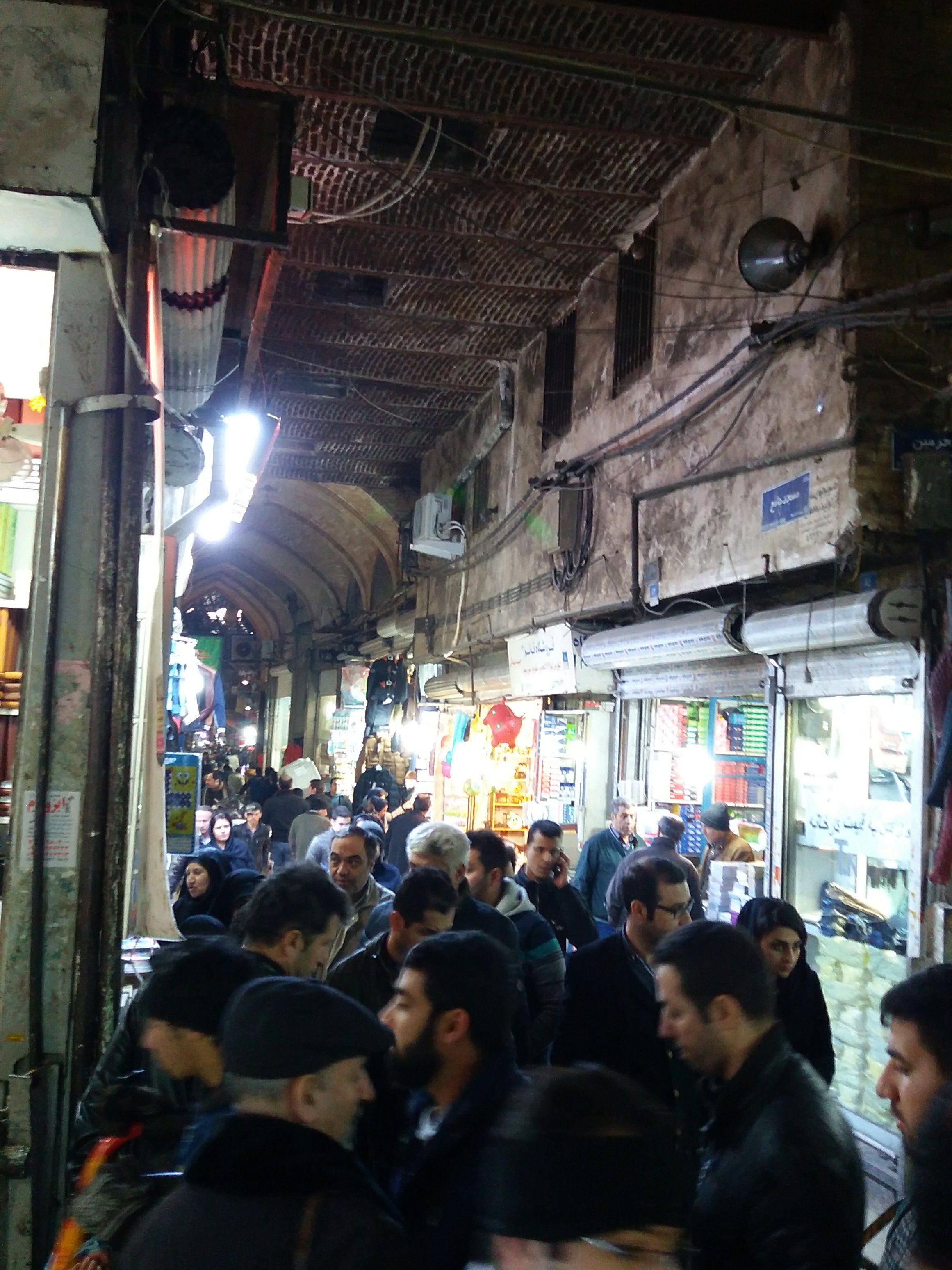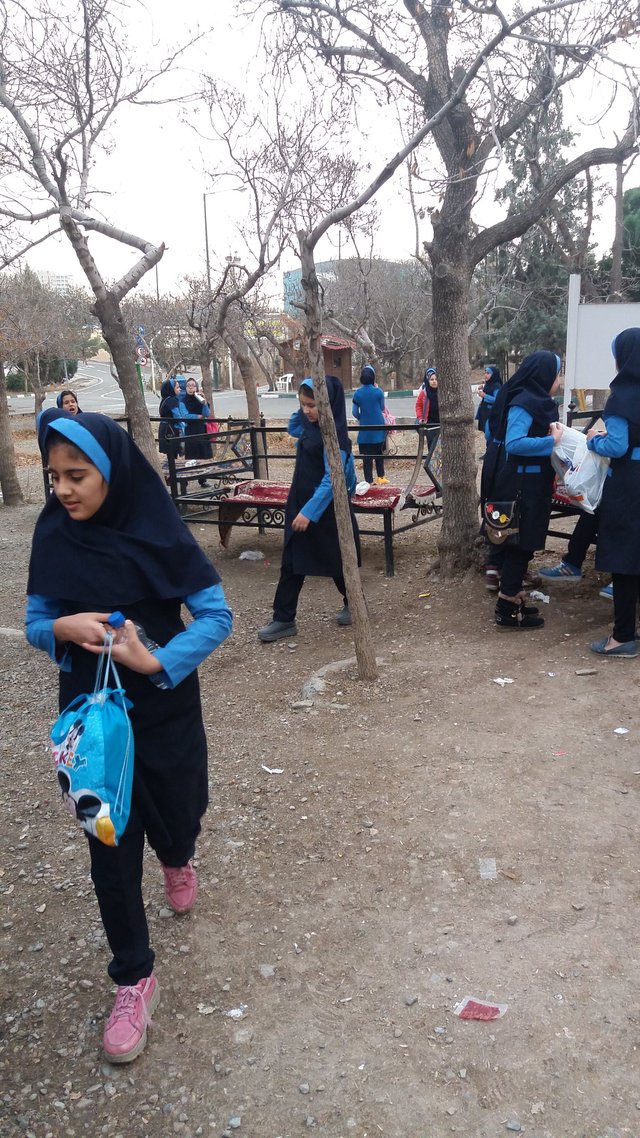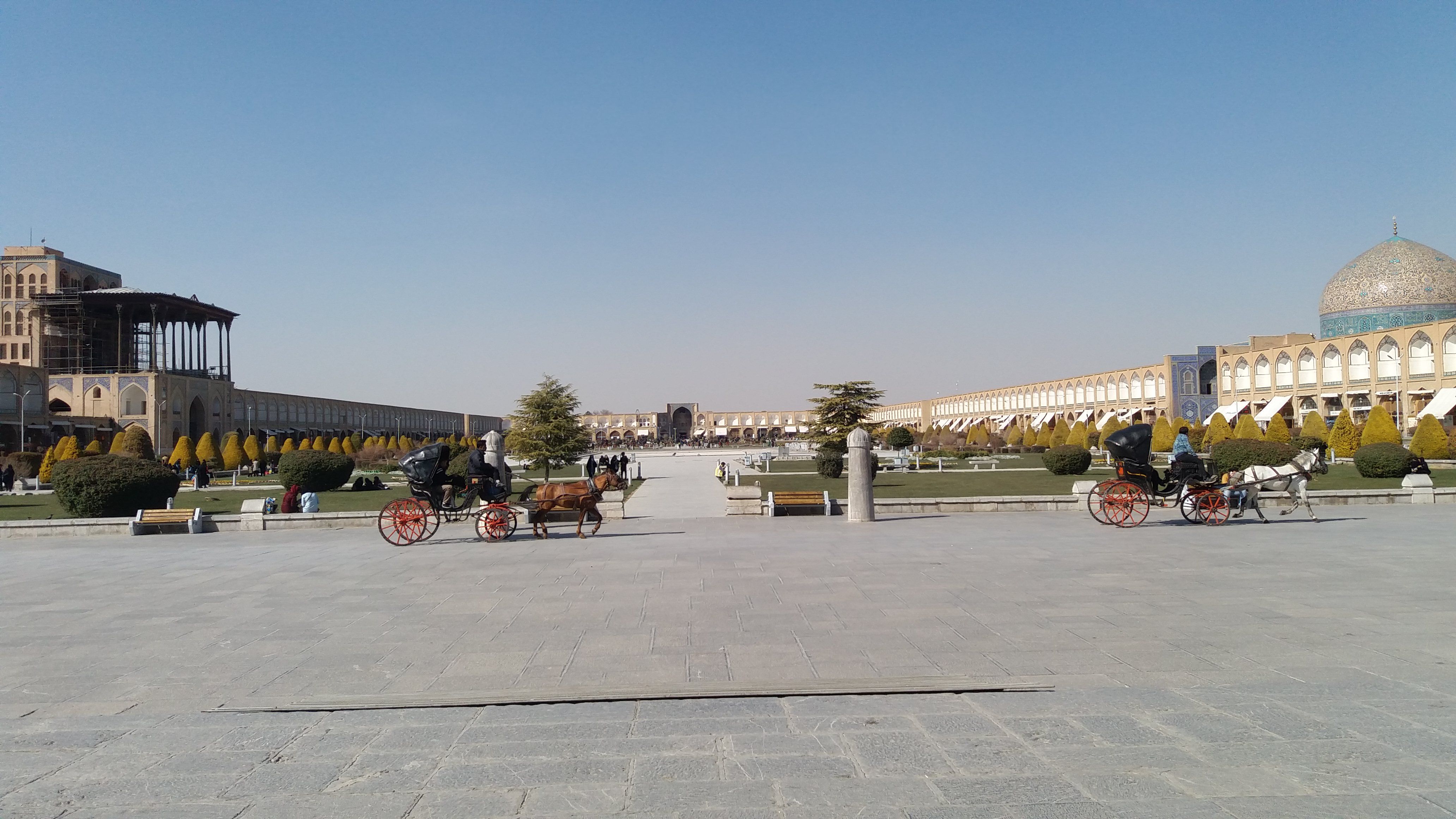Iran: A Different Story to the Common Misconception | Part 2
I am posting this in the hope of reaching readers especially from the US, so they have a chance to reevaluate their opinions about Iran--the land of many misconceptions and one sided reporting. I have journeyed there last year and want to share my experiences with you in the hope that it will give you a better insight into the daily lives of Iranians and their culture.
Click here to read part 1
Not all of the things I had encountered were of course so rosy. There is the traffic which is unbearable at rush hour. Have you ever tried to cross the street when there are about 20 cars coming your way without there being any apparent intention of stopping for you? It’s kind of scary. However, after a couple of times it begins to feel natural. In some magical way the cars actually manage to avoid hitting you. Although there usually isn’t really enough time to look at the driver (and seeing their mood which could very well decide your fate) it is possible with a little bit of practice to navigate in the sea of cars and motorcycles without getting seriously hurt. But I still hope that this issue will get some serious attention soon as Iran has the highest number of traffic accidents in the world.[1] I am not too hopeful that the situation will improve quickly, though. There is just too much red tape involved in the decision making process of governmental agencies and quite frankly I think it would take half a generation to make people drop their current habit of driving. You can’t just start driving like a sane person from one day to another (if you think that you are a good driver just ignore what I am saying here). That takes some regulation, personal insight and a willingness to drop the sense of pleasure derived from extensive quarreling with other road users. And it’s especially the last point which might prove to be the most difficult thing for some Iranians to do. I remember sitting in a Taxi on one of my first days when we were in a traffic jam and another Taxi in front of us came suddenly to a halt. The result was that we crashed into the back of the car as we were keeping only about a hand’s length of a distance (which was apparently already pretty generous). Both drivers got out of their car and started screaming at each other and gesticulated frantically with their hands. But contrary to my expectation that their disagreement would end up in a fist fight, they suddenly just got back into their car again. It would seem that this had been just a friendly chit-chat, a routine civil conversation and it wouldn’t be worth involving the insurance companies with some minor bumps and scratches (which lends the cars their ultimate character and charm anyway).

People at the Tehran bazar
With so much traffic it shouldn’t come as a big surprise that there is also a lot of pollution. The air is at times so polluted from all of the vehicles that it makes it almost unbreathable. Especially near the streets it is very nauseating and it’s impossible to get a breath of fresh air. I can understand why most taxi drivers I encountered weren’t in a particular good mood. The exhaust from all of the cars cannot possibly have a good effect on someone. In general I didn’t encounter too many other forms of pollution, although I wasn’t too excited about some people’s attitudes about leaving their stuff out in nature. This reminded me of Italy where this kind of problem is even more prevalent. Parks and other natural sites sometimes look like landfills. Fortunately it wasn’t so bad in Iran, but there were still plenty of places which made it difficult to get a picture of some beautiful landscape without plastic bags or bottles entering the frame.
The strict rules laid down by sharia law are of course quite different to the ones encountered in Europe. Although, as a tourist it seems that you get a sort of special status in which breaking some of these rules doesn’t get you in too much trouble. But it still meant that almost all of the fun things that I had taken for granted in Germany were forbidden. You want to spontaneously test those dance moves from the last youtube video you saw (oh yeah, by the way, youtube isn’t a thing in Iran — it’s censored; although of course there are ways around that problem which most people know about)? No, it’s not possible. Dancing is not allowed in public places (especially for women). I don’t really know what happens if you do it anyway, but the police will probably take you in for questioning. You want to walk around with short pants or maybe no shirt because it is really hot? I certainly wouldn’t recommend doing it as a man; a woman of course could be held for questioning. Kissing in public is also a big no no. Although holding hands with your girl or boyfriend has become more acceptable over the last years. For some Iranians these laws aren’t necessarily seen as problematic if they live a fairly traditional and religious life. But there is a growing number of people — predominately the younger generation — which find these rules rather outdated and would like to see some changes. Maybe it was because I socialized mostly with people in my age group, but a majority of the people I encountered wanted to see societal change. It was change related to all spheres of society — may it be religious, political, financial or educational. But they weren’t quite sure how such a change could be realized (or ever come about). Most of them shared a sense of not being satisfied with their current living situation. I think much of this stemmed from insufficient financial independence. People had told me that it was just about impossible to find a decent well-paying job. Teachers had to sometimes work as taxi drivers to earn enough money to pay for the rent and other expenses, which of course meant that they didn’t have enough time preparing for their classes. Even if you had some type of college degree, I was told that most people worked in different fields than in what they had graduated in. This precarious financial situation most Iranians find themselves to be in means that many of them still live at home. I have found this to be quite strange yet understandable given the just outlined circumstances. It is strange for me because most young people in Germany want to leave their parent’s home as soon as possible. If I had to guess, I would say that most people are in their early 20s when they leave home. Most of them move into either a shared apartment with other people their age or into an apartment by themselves. With this normally comes a first sense of independence and a realization into what it means to live away from the family (having to do chores, buying groceries, washing your clothes etc.) which comes much later for most Iranians.

School children at a nearby park
I think Iranians find the idea to be separated from the family so soon to be quite distressing. Relatives normally live quite close to each other and when the children move into another village or city it is frowned upon by most parents (albeit it is seen as necessary when they can receive a better education there). Especially women live fairly long with their parents or siblings at home. The reason for this is that it is socially and economically difficult for them to live by themselves or with other women. Only if they become married can they move out and live with their husband. The result is that it is not uncommon for women to be in their late 20s or early 30s and still live at home. Although I find especially this last custom to be somewhat questionable, I have come to appreciate the emphasis Iranians place on family values relating to trust, support, and care. It is something that has steadily decreased in western countries and has left us with a society where individualism and self-dependence are highly valued. Perhaps rather a blend between both of these sides could bring about more coherence in society and also foster a happier and more contented life. In Sweden, for example, I have heard that almost half of the adult population feels lonely at some point in time. Especially in bigger cities where people often live alone and are single this problem is wide spread. There was even a case where an old man lay dead in his apartment for two years unnoticed… something I couldn’t imagine happening in Iran. [2] Perhaps in an unconscious effort to combat this, Iranians often participate in what they call “seleye rahem”. It is a way to keep in touch with all of their relatives by agreeing to meet one another regularly. Although I can imagine that practicing this form of family care could potentially also have adverse effects (imagine getting a visit from your aunt every other day), I think the overall benefits are very good for the family as a whole. In Germany I usually see my closest relatives just two or three times a year. We usually have a big family festival in summer where all of us gather at my grandparent’s home. The other time is at Christmas where I go back to my family’s home. Although the rate of these family reunions is fairly low, I think it is comparable with other families here in Germany. The main reason probably being the long distances separating family members, making it more difficult for spontaneous short visits. As unbearable as this might sound to some Iranians it is something which people in the west have grown accustomed to over the last few decades.

The famous Naqsh-e Jahan square in Isfahan
stay tuned for part3!
[1] http://www.bbc.com/news/world-middle-east-18023809
[2] https://www.thelocal.se/20151229/sweden-is-a-paradise-but-we-have-lost-simple-human-values
@originalworks
The @OriginalWorks bot has determined this post by @tobetada to be original material and upvoted(1.5%) it!
To call @OriginalWorks, simply reply to any post with @originalworks or !originalworks in your message!
I didn’t know all that. Thank you
you are very welcome :)
This is a very interesting insight. Makes me glad to be a woman in a country where women have equal rights though.
yes, that's true. Women do not have the same rights as men there. However, in daily life women do receive respect from men and are almost treated equally. But unfortunately, there are still many cases when they are still treated worse, e.g., not getting paid on time or getting their fair share, two class system in public transportation (although I think some women actually think this is good), dress code etc.
Good job! Thanks to @gulugu you have planted 0.05 tree to save Abongphen Highland Forest in Cameroon. Help me to plant 1,000,000 trees and share my Steem Power to the others. Selfvoting is prohibited, but that should be the reason to spread the world to protect our precious environment. Check out profile of our conservation association @kedjom-keku and the founder/coordinator @martin.mikes to get more information about our conservation program. My current SP is 14374.32. Help me to plant more trees with your delegated SP.
Thanks a lot,
your @treeplanter
www.kedjom-keku.com